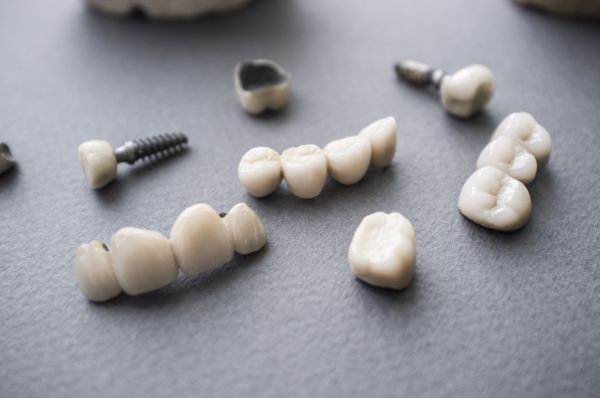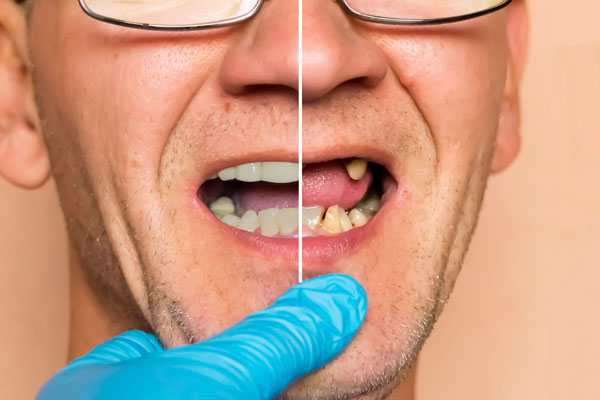Is a Root Canal Necessary Before a Dental Crown?

It is not always necessary to get a root canal when a dentist places a dental crown. These oral prosthetics, also known as caps, are used to protect the visible part of a person's teeth. Crowns are designed to look just like the tooth they are covering, making it very hard to detect when a person has one on a tooth.
The reason why there is a misconception around the need for a root canal prior to crown installation is because it is a common procedure. It is not a prerequisite, however, since there are many reasons a crown might be used that do not require a root canal. We will explore some of these later.
What is a root canal?
A root canal is a procedure performed to remove the soft tissues inside a tooth. It is usually done when a tooth has been infected or damaged to the point the contents of the pulp chamber are exposed to all the things in the mouth like bacteria.
An anesthetic is usually administered during the start of the procedure and the dentist drills a hole into the damaged tooth. Files of different widths are then used to extract the contents of the pulp chamber. Finally, the dentist applies to seal the hole. The tooth is sealed up with a rubber material and a crown is used to provide additional stability. In some cases, the dentist might decide to skip the crown and apply a composite to the tooth instead.
There is little pain involved with root canals despite the many misconceptions indicating otherwise.
Popular uses of dental crowns that do not require a root canal
Here are some common uses of dental crowns that are done without a root canal:
1. Improving the look of a discolored tooth
Nowadays, teeth whitening treatments are quite effective, but they do not eliminate all types of stains. Certain stains, like those caused by tooth decay or overexposure to fluoride, cannot be removed with whitening treatments. Crowns are often used in these instances to cover up the discolored tooth and improve the appearance of a patient's smile.
2. Chipped teeth
Some breaks and chips do not open up the pulp chamber and these do not require a root canal. Since the enamel is often broken off during such injuries, the tooth needs to be protected by a crown to prevent sensitivity. Once the crown has been installed, it will be virtually impossible to tell which tooth has been restored.
3. As anchors for dental bridges
When a person opts for dental bridges as a tooth replacement option, the two teeth closest to the gap created by the missing teeth are usually fitted with crowns. This strengthens them, making them better anchors for the bridge.
Root canals and crowns do not always go together
Getting a root canal does not always require getting a crown and vice versa. Stop by our clinic and explore all your alternatives if you think you need either of these treatments.
Let's get started…
Request an appointment here: https://thechesterfielddentist.com or call Chesterfield Dentist at (804) 412-0867 for an appointment in our Chester office.
Check out what others are saying about our services on Yelp: Read our Yelp reviews.
Recent Posts
Endodontics often relieves intense tooth pain by treating infection or inflammation deep inside a tooth. When care stays gentle and methodical, root canal therapy can feel far more manageable than its reputation suggests. A general dentist who prioritizes comfort, clear communication, and careful technique can help the entire process move smoothly from diagnosis to recovery.…
A dentist’s job is to make sure your teeth stay in great health. For many patients, this means considering the benefits of dental restorations. Dentists recommend restorative procedures when a patient has a damaged, diseased, or missing tooth. These standard treatments stop the problem in its tracks, prevent additional injury and infection, and even provide…
The purpose of dental restorations is to replace permanent teeth that are lost. This can happen because of trauma to the tooth that renders it irreparable or decay that is so extensive that it requires extraction. There are several restoration options for replacing a missing tooth. Some are removable while others are permanently fixed in…
A healthy smile depends on more than daily brushing and flossing. If you are experiencing gum disease or severe plaque buildup, a deep teeth cleaning can restore your oral health. Unlike a standard dental cleaning, this treatment targets bacteria below the gumline and reduces the risk of serious oral health issues.Deep teeth cleaning, also known…


